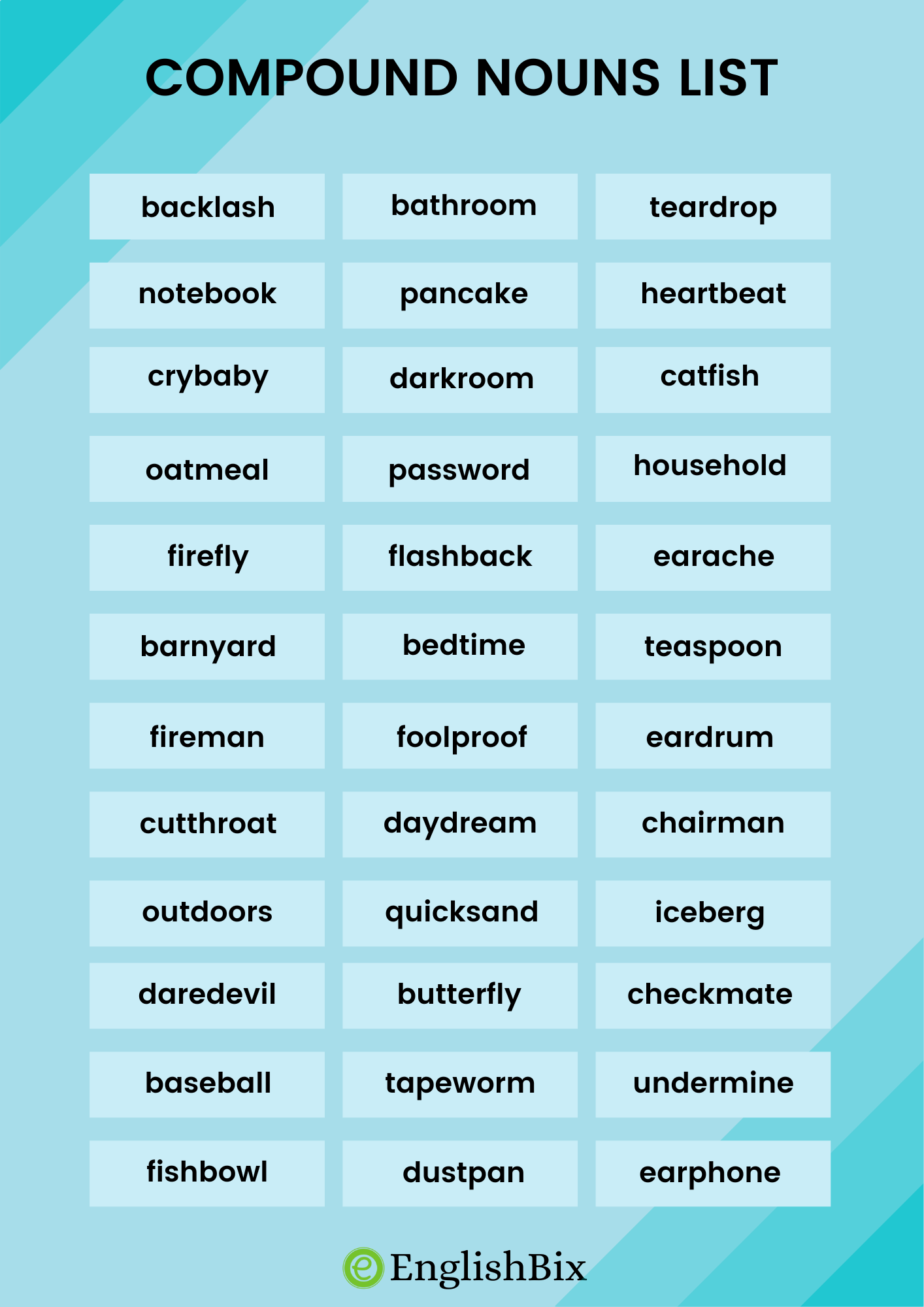Nouns are an essential part of speech that help us identify people, places, things, or ideas. A noun compound word is formed when two or more nouns are combined to create a new word with a specific meaning. Understanding noun compound words can enhance your vocabulary and improve your communication skills.
When two nouns are combined to form a compound word, the first noun typically acts as an adjective to describe the second noun. For example, “school bus” is a compound word where “school” describes the type of bus. Noun compound words can be hyphenated, written as separate words, or combined into one word.
Noun and Noun Compound Words
One common type of noun compound word is the “noun-noun” compound, where two nouns are joined together to create a new word. Examples of this include “coffee cup,” “bookshelf,” and “firefighter.” These compound words help us be more specific and efficient in our language, as they convey a clear and concise meaning.
Another type of noun compound word is the “adjective-noun” compound, where an adjective and a noun are combined to create a new word. Examples of this include “hotdog,” “blackboard,” and “greenhouse.” These compound words help us describe objects, people, or places with more detail and precision.
It’s important to remember that not all combinations of nouns create compound words. Some combinations may be better suited as separate words or phrases, depending on the context and intended meaning. Understanding the rules and patterns of noun compound words can help you use them effectively in your writing and speech.
In conclusion, noun and noun compound words play a crucial role in our language by allowing us to be more descriptive and precise in our communication. By recognizing and using these compound words in your vocabulary, you can enhance your language skills and convey your thoughts more effectively. Practice identifying and creating noun compound words to expand your linguistic abilities and improve your overall communication.
